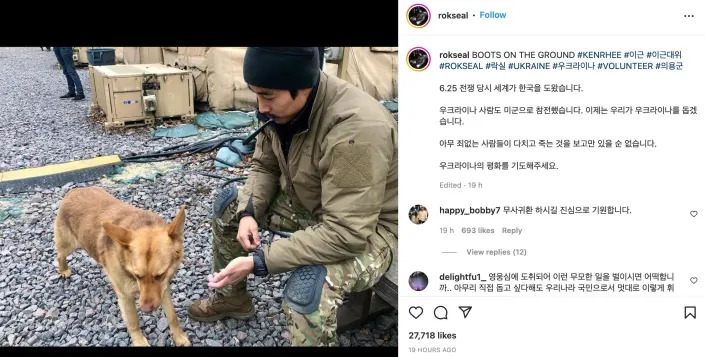Russia, China in 'strategic convergence' -Australian intelligence

A Chinese flag is seen near a construction site in Beijing's central business area
Tue, March 8, 2022
SYDNEY (Reuters) - A "troubling new strategic convergence" between Beijing and Moscow has developed and the risk of "major power conflict" had grown since Russia invaded Ukraine, Australia's intelligence chief said on Wednesday.
Andrew Shearer, director general of the Office of National Intelligence, said China's President Xi Jinping appears to be planning to dominate the Indo-Pacific region and use it as a base to overtake the United States as the world's leading power.
The comments reinforce warnings that the Russian invasion of Ukraine, which has met near-universal condemnation by the West, may spread into a regional or global conflict. This week Australian Prime Minister called on liberal democracies to stop an "arc of autocracy" reshaping the world.
"We're going to have to work much harder to maintain the liberal quality of the rules-based order in Europe and here in the Indo-Pacific region," Shearer said at a conference hosted by the Australian Financial Review.
"We see a leader who's really battening down and hardening his country for this struggle to overtake the United States as the world's leading power," he added, referring to Xi.
"The base camp ... is to establish primacy in the Indo-Pacific region."
Shearer said the geopolitical threat would centre around technology, including use of cyber attacks, so Australia must bolster its cyber defences without closing itself to trade and information-sharing.
"We need a growing, open economy so we can fund the increases in defence spending that the government's committed to, but this can't be a zero sum trade-off between economics and security," he said.
Since Russia's invasion of Ukraine, which it has called a "special operation", Australian intelligence professionals considered that "a major power conflict unfortunately is becoming a less remote prospect than it was previously", Shearer said.
He echoed many Western commentators by saying he was surprised by the effectiveness of Ukraine's resistance to Russian forces. But he foreshadowed a "brutal, bloody couple of weeks" since Russian leader Vladimir Putin had "everything at stake now (and) it's hard to see an elegant, or inelegant, dismount".
The Kremlin describes its actions as a "special operation" to disarm Ukraine and unseat leaders it calls neo-Nazis. Ukraine and Western allies call this a baseless pretext for a war of choice that has raised fears of wider conflict in Europe.
A Chinese foreign ministry official told reporters on Wednesday that he was not aware of Shearer's remarks.
But Shearer should pay more attention to the "ignorance of Australia's commitment to non-proliferation" as a result of the trilateral AUKUS agreement that will provide Australia with nuclear-powered submarines, said Zhao Lijian, a spokesman at the Chinese ministry.
Under a trilateral security partnership announced last year, Australia is to build at least eight nuclear-powered submarines with U.S. and British technology.
"This is what is truly troubling for the region," said Zhao.
(Reporting by Byron Kaye; Additional reporting by Eduardo Baptista in Beijing; Editing by Michael Perry)




